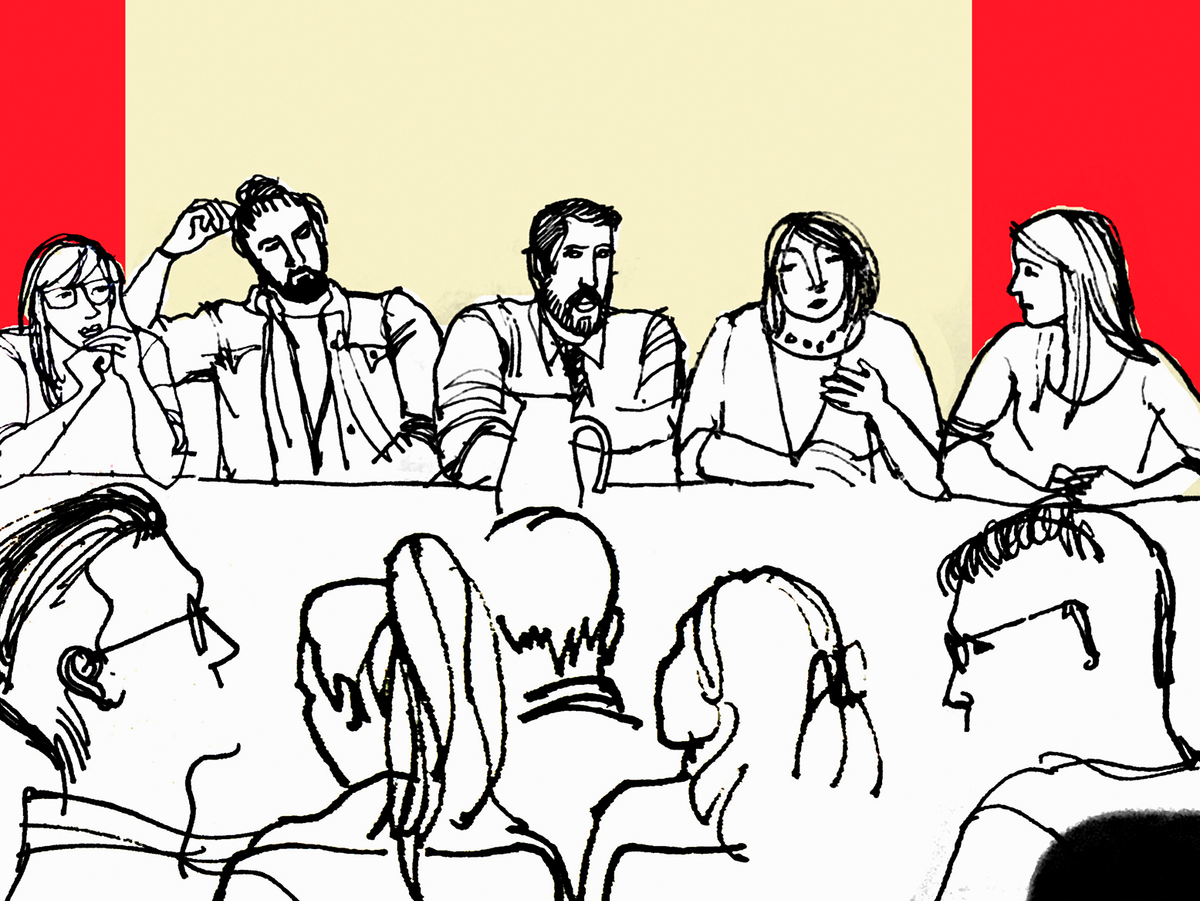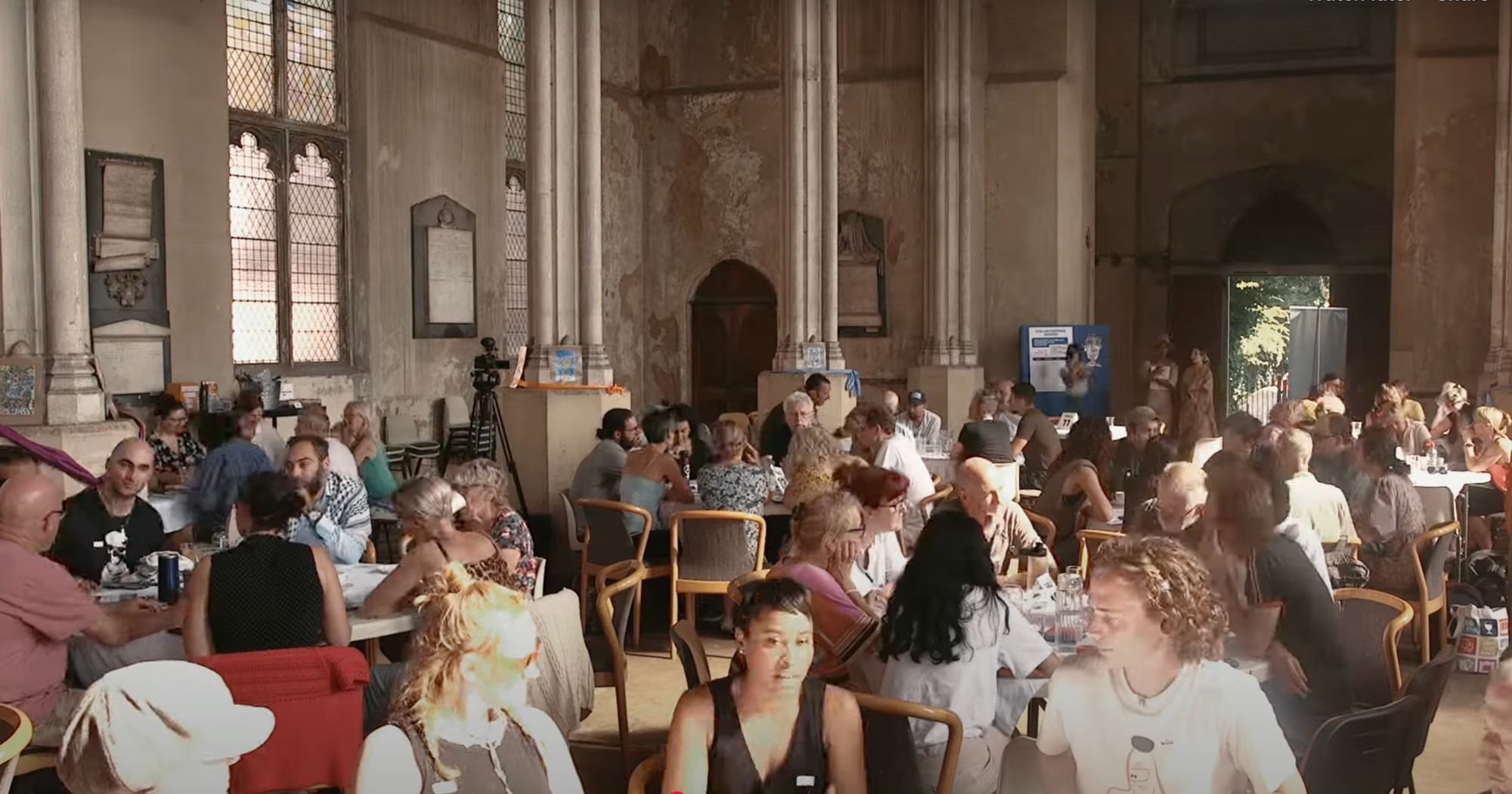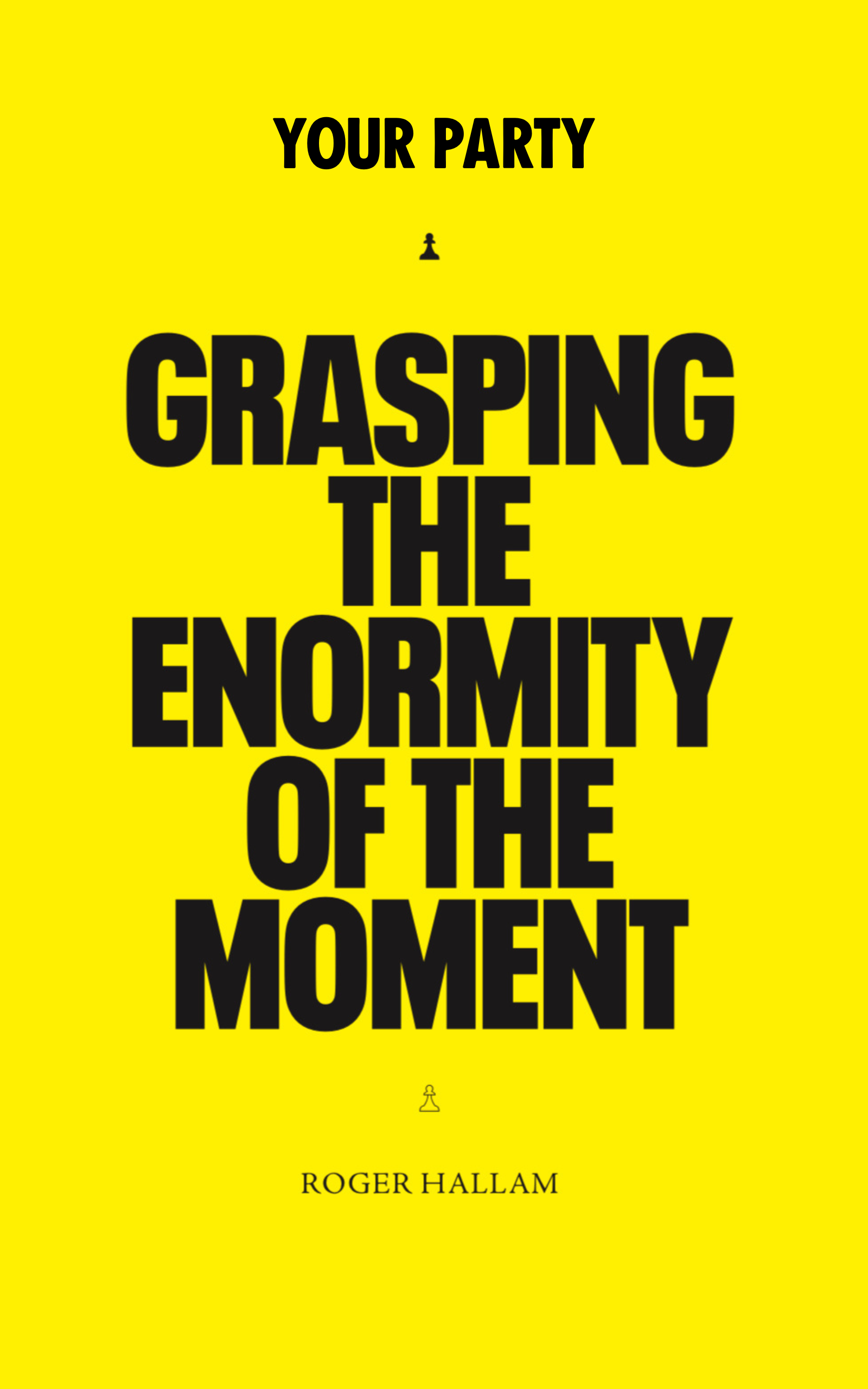🗣️ Why community assemblies will change British politics forever
Systemic change requires people power

“Power concedes nothing without a demand” - Frederick Douglass.
The atmosphere is getting heated. Tensions are rising. I’m standing in a corner of an inner city public hall during a community assembly. The room is filled by about 150 people, sat around small tables. The assembly is about to set a demand of the local council. A woman has just stood up and is insisting that “we don’t want a demand, we need engagement”. She makes her declaration with a confidence that betrays a certain social position. A few minutes later a man also gets up to inform the assembly that he is a councillor and so he needs to address everyone on how he is working very hard and doing his best. No doubt this is true.
However, if you have been to properly run assemblies, you will know this is not how they work. People do not just get up and start mouthing off. Discussions occur in small groups so that everyone gets to speak – and listen. The rule is people in the groups select a person to speak for their table. These arrangements ensure everyone can participate in the limited amount of time during the evening event. It’s a proven way to enable the young, the old, the unconfident, and the marginalised to feel listened to, and thus empowered. If people take it upon themselves to speak to the whole room because of “who they are”, the whole thing breaks down. It becomes dominated by the middle aged, the confident, those in the centre of power, those with privilege.
But that is the point. The liberal administrative class insists on engagement when the great unwashed of the community are about to make a demand. This is because they know “engagement” will fail to get radical results, as it has for decades. When their power is challenged, they are more than happy to stop their engagement and issue a demand instead: “I am a councillor – a person of standing – and that means I can take up time in this space. I am more important than the rest of the people here.”
This is the deep and vile hypocrisy of power. I remember being interviewed by UnHerd for their YouTube. The interviewer, Freddie Sayers, did the standard move that “civil disobedience is bad because it breaks the law”. I told him everyone breaks the law including, and especially, conservatives – it’s just a matter of whether you feel your core values are being violated. If your core value is power, and if you find it is being challenged, then the rules have to be set aside – as ten thousands of former Labour Party members found out after Starmer became leader.
Coming back to the assembly – it’s not like they didn’t know. The rule of not speaking for yourself to the assembly was written down on the intro sheet issued to each person as they came into space. It was explained to everyone in the first five minutes of the event. People are reminded of it by the facilitators in the small groups. They knew. Those that disagree with the rules are of course free to leave. But they are there to disrupt, not engage. Not to see a campaign with a demand, but to make sure there is no campaign. Engagement is for the masses; disruption for the elites. That is the core message of the neo-liberal ideology.
But now this edifice of deception is breaking down because everyone knows “it is not working”. And so community assemblies are the new battleground where insurgency goes up against repression. Assemblies are “sites of class conflict”, the administrators against the administrated.

The subject of the assembly, in this case, was to create a campaign to get the council to provide proper care and support for those suffering from homelessness, addiction and ill mental health on the streets – the biggest issue to come out of an extensive ten week surveying project. The proposition has a certain innocent simplicity about it, which in the present climate makes it necessarily revolutionary. How dare you suggest that 200,000 homeless people in London might not be an act of nature! Everyone knows that sorting this unsortable problem requires “systemic change”. That is why for our administrators it is impossible. In fact, anything “decent” is now “impossible”. That is why it’s “socialism or barbarism”. This is no longer rhetoric nor ideology. It is social fact.
The centre will not hold. Things have gone way too far for far too long. The administrators might be able to break a few rules, create a temporary disruption of the emerging common will but change is coming. After Christmas if the councillors have not acted, and no doubt they will not, independent community candidates will be put up against the old regime. The Labour Party has been in power in this London borough since the Second World War. But all things pass, as they say.
And they are about to pass for that Labour councillor, regardless of how long he gives himself to speak.
This article was initially published in The New Statesman and is a shortened account of the arguments presented in Roger’s new book, “Grasping the Enormity of the Moment”, on the responsibilities of the new British political party.
📕 Here’s how to get a copy :
- Free copies for paid subscribers: All paid subscribers to Roger's blog can get a free ebook copy. Links to download are at the bottom of this post or the bottom of Roger's books page. Thank you for being so supportive! (If you have any problems downloading, just email us on roger@rev21.earth)
- Print copies for Revolutionary Members: If you donate £20 or more, you’ll receive a print copy of the book. So, revolutionaries, sign up to receive your copies. (It's never too late to increase your donation!).
- Or buy it! If you’re a free subscriber, you can purchase the print or e-book. Please leave a review afterwards to help others find it.

